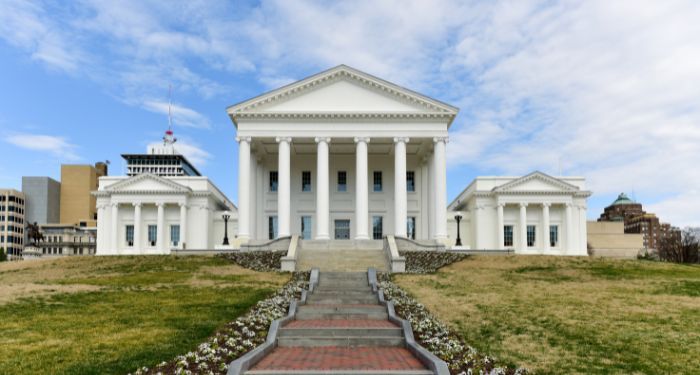In a year marked by more states advancing legislation to make banning books more difficult, including Washington, New Jersey, Kansas, Colorado, New Mexico, and Massachusetts, Virginia has entered the fray. The Virginia bill mirrors a lot of what California legislators passed last fall in that it would limit the ways school boards can ban books and curriculum.
Senate Bill 235 was introduced by Senator Ghazala Hashmi of Chesterfield in response to a 2022 bill signed by Governor Glenn Youngkin. Youngkin’s bill requires that parents be notified about “sexually explicit” books or resources are being used in schools and allows for parents to opt their students out of such lessons. The result of the bill has, of course, been that more materials are being challenged and removed by school boards across the state, as “sexually explicit” is an ill-defined concept. It’s been used extensively to remove books by or about LGBTQ+ people.
“I feared the direction we were going in the Commonwealth — the direction that we actually saw come to pass — that is the direction of book bans and censorship. We had superintendents who actually began to remove books from school libraries.,” Hashmi said on the Senate floor last week.
The changes to the bill would not end the notifications to parents nor would it limit the ability for parents to review the material prior to its use. Instead, the bill would make explicit that boards would not be able to remove those materials from the schools. The below in italics is the proposed change:
C. Each school board shall adopt policies that are consistent with but may be more comprehensive than the model policies developed by the Department pursuant to subsection B. However, nothing in this section, any model policy or amendments thereto adopted by the Department pursuant to subsection B, or any policy or amendments thereto adopted by a school board pursuant to this subsection shall be construed to permit the censoring of books in any public elementary or secondary school.
“This makes sure that localities, in the dead of the night, which is what happened on a Friday night in a county around here where they took 75 books off the shelf with no process at all, which takes away my kids’ right to read a book that they want to read,” said Democratic Senator Schuyler VanValkenburg, referring to what happened in Hanover County schools late last year. “We’re talking about Kurt Vonnegut was taken off the shelves, right? This prevents a school board from doing that.”
The American Library Association recorded 14 attempts to restrict access to books in Washington between January and August 2023 alone, with 356 book titles challenged. This placed the state among the top for censorship attempts in this time frame. PEN America recorded 75 book bans in school districts during the 2022-2023 school year–again, placing it among the top tier of states banning books. Censorship attempts in recent months include those at Spotsylvania Public Schools, Lexington City Schools, Rockingham County Schools, Madison County Public Schools, and others
SB 235 passed through the Senate last week. It had support from every Democrat, as well as Republican Senator David Suetterlein of Roanoke County. It moves onto the House. More action is to come on the bill. If you are a Virginia resident, take 10 minutes to write your representatives in support of the bill. You have a wealth of statistics at your fingertips, including those found in the recent Book Riot x Every Library Institute research about how much libraries are supported by their communities.
